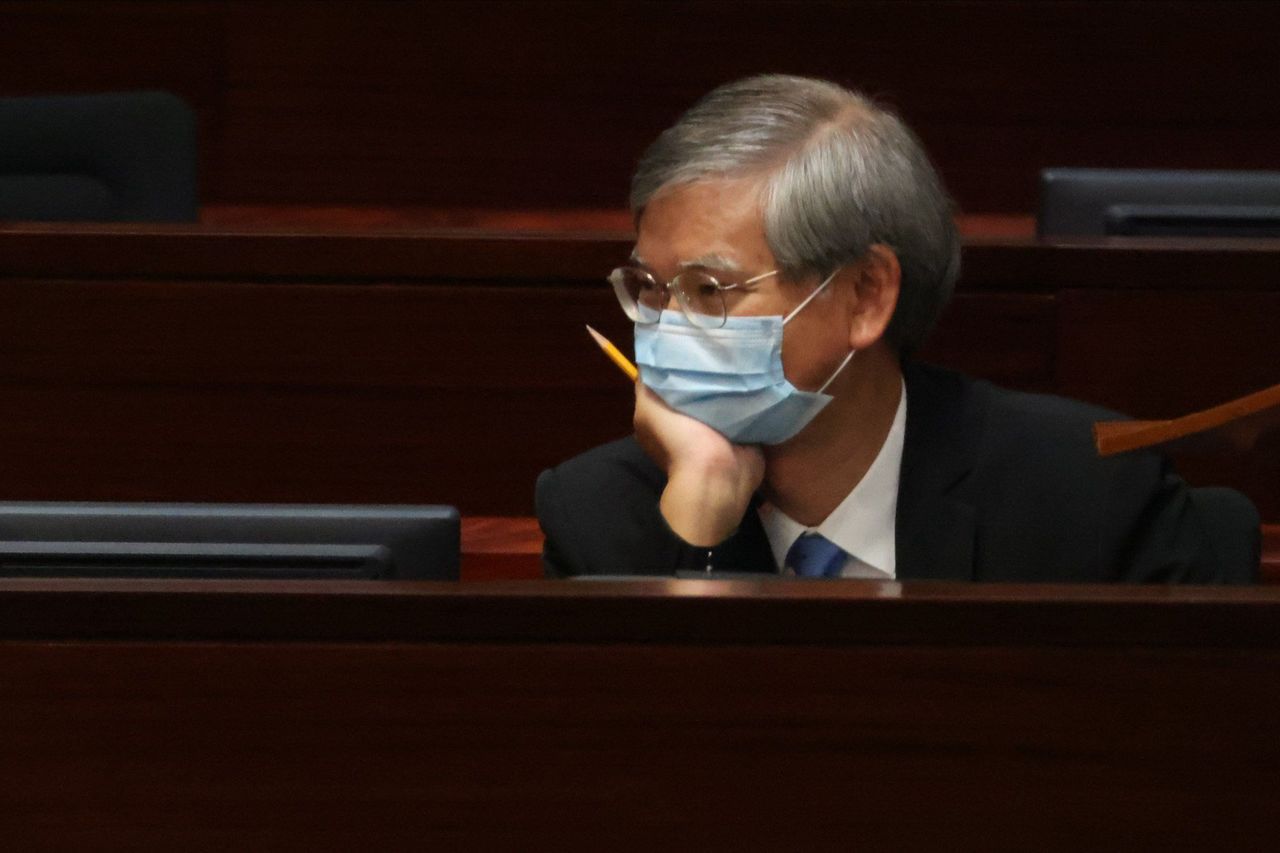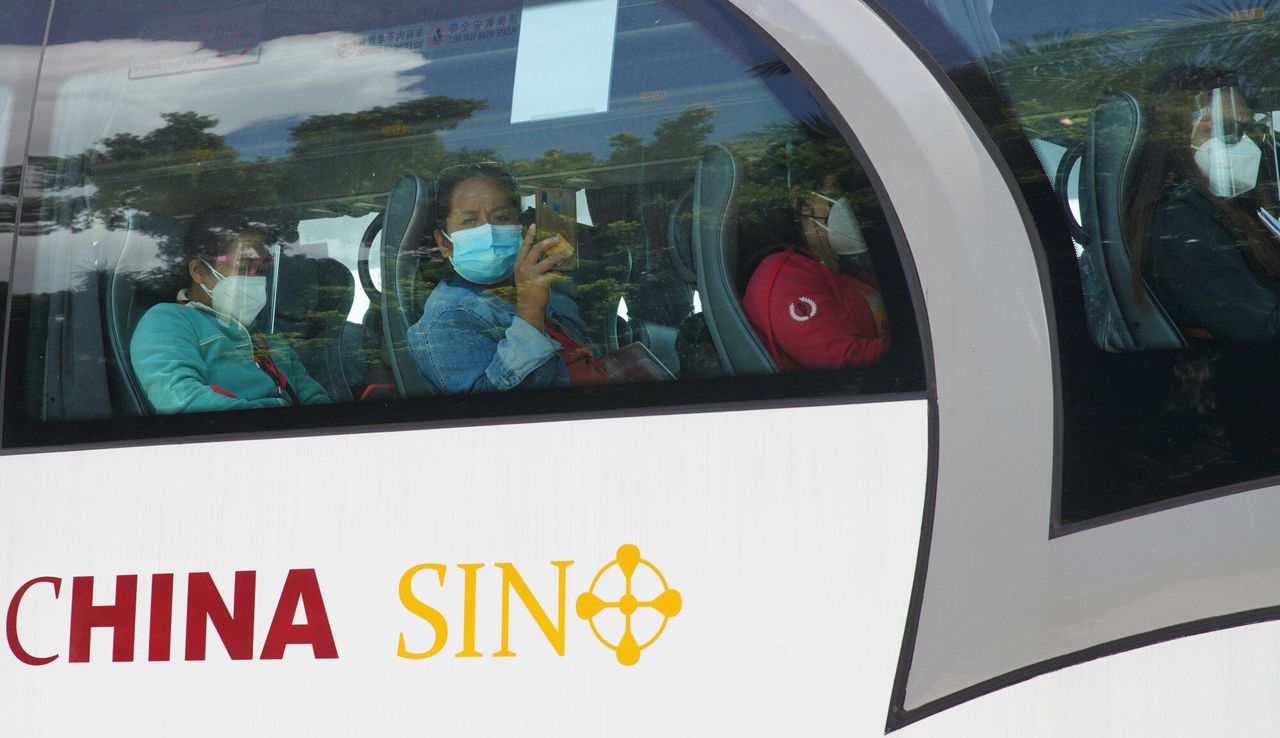Hong Kong News

Domestic helper shortage continues to plague Hong Kong authorities, families
Families struggling amid a shortage of domestic helpers have yet to see a light at the end of the tunnel, with the number of such workers in Hong Kong declining to its lowest level in years, the city’s labour chief has said.
Writing on his official blog, Secretary for Labour and Welfare Law Chi-kwong said authorities had made progress in finding more quarantine facilities for incoming domestic helpers, before the Omicron coronavirus variant began to affect Hong Kong and Southeast Asia last month.
But those efforts were in vain when flights from the Philippines were banned from landing in Hong Kong after the country was hit by Omicron, he added.
 Secretary for Labour and Welfare Law Chi-kwong.
Secretary for Labour and Welfare Law Chi-kwong.
“In mid-December, we made headway in increasing quarantine facilities for helpers … but such ‘dawning light’ soon vanished,” he said.
“It was because the pandemic situation in the Philippines had rocketed … In early January, more than 40 per cent of 175 Filipino domestic helpers tested positive. It was very shocking.”
Hong Kong’s helpers mainly come from the Philippines and Indonesia.
Law said the number of domestic helpers had decreased in Hong Kong over the past two years, noting that there were about 400,000 of them in the city in January 2020. That figure dropped to 350,050 in November last year, and then to 339,451 by the end of December.
It was the lowest since at least the end of 2016, when there were 351,513 helpers in Hong Kong. The Post has reached out to the government for pre-2016 statistics.
From September to November last year, the figure decreased month on month by about 1,300 to 1,900. But from November to December, the number fell by more than 10,000.
Law said he feared the figure indicated that many Filipino helpers could have been left stranded by the flight ban after returning home for the Christmas and New Year holidays, adding the government would closely monitor the situation in both the Philippines and Indonesia.
“[In mid-January] the average number of coronavirus infections in the Philippines peaked at about 35,000 per day. Now it has decreased by about a third, but we don’t know whether it … will reach a low level so that the flights can be resumed,” he said.
The pandemic situation in Indonesia was also worsening, albeit at a slower pace than in the Philippines, he added.
At the start of the pandemic, domestic helpers were allowed to be isolated for a fortnight in dozens of quarantine hotels for incoming travellers. Authorities later lengthened the quarantine period for all visitors to three weeks, and only designated a few hotels, as well as about 1,000 units in the government-run Penny’s Bay quarantine centre, for arriving helpers.
 The Labour Department has announced two more quarantine hotels will be made available for incoming domestic helpers.
The Labour Department has announced two more quarantine hotels will be made available for incoming domestic helpers.
Law said authorities had managed to find more quarantine hotels for incoming helpers in August last year, but the effect was cancelled out as the Penny’s Bay spaces were reserved for other purposes.
“Even those domestic helpers who had yet to finish their quarantine had to be moved to the designated hotels,” he noted.
The Labour Department said on Thursday that apart from the three designated quarantine hotels for incoming helpers, two more facilities – O’Hotel and iclub Ma Tau Wai Hotel – would be made available.
The hotels will provide an additional 491 rooms, taking the total number of quarantine spaces for arriving helpers to 2,779.
“We can imagine the difficulties faced by tens of thousands of Hong Kong families who lack support from domestic helpers … But to avoid burdening our medical system, we must remain vigilant about imported cases,” Law said.
Mike Cheung, president of the Hong Kong-based Overseas Employment Centre, said Law should consider allowing helpers to be quarantined in other hotels, not just the designated five.
“This two-track policy was adopted due to uncertainty about anti-pandemic measures in the Philippines and Indonesia. Now that we can see the domestic helpers are not bringing the coronavirus to Hong Kong, employers should be allowed to book other quarantine hotels,” he argued.
But Betty Yung Ma Shan-yee, chairwoman of the Hong Kong Employers of Overseas Domestic Helpers Association, said she was not so sure about relaxing the rules for helpers, especially when the government had recently shortened the quarantine period for all incoming travellers from three weeks to two.
Yung also urged the government to do more to help employers of domestic helpers.
“Many people could not hire helpers because the hotel rooms and agent fees are too costly. There were also cases where helpers quit and switched employers soon after finishing quarantine, and where employers lost their jobs and needed to dismiss their helpers,” she said.











